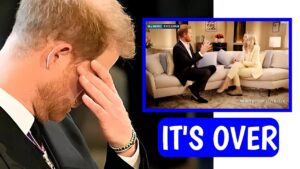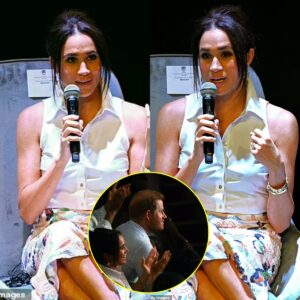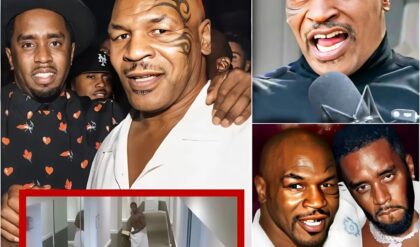Prince Harry’s Tabloid Exposé: A Critical Analysis
Prince Harry’s latest ITV documentary, Tabloids on Trial, was poised to be a groundbreaking exposé on the unethical practices of the British tabloid press. With high expectations and a promise to unveil the dark side of media intrusion, the documentary aimed to shine a spotlight on the alleged abuses faced by the royal family. However, the project has sparked a considerable amount of skepticism and critique, with many viewers questioning its effectiveness and the credibility of its central figure.
In Tabloids on Trial, Prince Harry makes a series of grave allegations against the British press, including claims of false reporting and phone hacking. The documentary seeks to highlight what Harry describes as a relentless campaign of invasion and harassment that has had detrimental effects on his and his family’s mental health. Harry’s narrative is built around the premise that the tabloids have not only crossed ethical boundaries but have also inflicted significant personal harm through their actions.
Despite the serious nature of Harry’s claims, the documentary has faced criticism for its lack of concrete evidence. Viewers and critics alike have pointed out several discrepancies between Harry’s accusations and the specifics of the articles he references. For instance, Harry criticizes a 2019 article in The Sun for allegedly fabricating details about Meghan Markle’s personal assistant quitting her job. However, the article only reported that the assistant had left her position, a nuance that undermines the claim of outright fabrication.
Similarly, Harry disputes a 2016 Daily Mail story that reported Meghan had been involved in a dog attack. The article, however, described the incident as a dog bite rather than a full-blown attack. This distinction, while seemingly minor, reflects a broader issue with Harry’s presentation of evidence, where the perceived exaggeration of tabloid misdeeds fails to align with the factual content of the reports.
Harry’s allegations of phone hacking by tabloid journalists also face scrutiny. He asserts that his phone was subjected to repeated intrusions, but the documentary lacks substantive documentation or forensic analysis to substantiate these claims. Harry’s arguments are largely based on his personal belief that such hacking occurred due to the nature of the information leaked. This reliance on circumstantial evidence, rather than direct proof, weakens his case.
While Harry does reference a 2007 court case involving the News of the World’s phone hacking of a royal aide, this case predates his own issues with the press by over a decade. The tenuous connection between this historical case and Harry’s more recent experiences with tabloid intrusion adds another layer of skepticism to the documentary’s arguments.
The prevailing sentiment following the documentary’s release is that Harry’s efforts may have inadvertently harmed his own credibility. The documentary, rather than delivering a decisive blow to the tabloid industry, has been perceived by many as an opportunity for tabloids to further dismiss Harry’s concerns. Media commentator Dan Wootton argues that Harry’s failure to provide conclusive evidence undermines his case and plays directly into the hands of the tabloids he aims to criticize.
Wootton’s critique underscores a broader frustration among those who had hoped for a thorough reckoning of the tabloid press. Instead of exposing systemic abuses with irrefutable evidence, Tabloids on Trial has been accused of presenting an overstated narrative that lacks the necessary rigor to effect meaningful change.
The failure of Tabloids on Trial to achieve its intended impact raises questions about the effectiveness of high-profile personal campaigns against institutional media practices. Prince Harry’s attempt to leverage his own experiences for a broader critique of the tabloid industry reflects a common approach among public figures seeking to address systemic issues. However, the documentary’s shortcomings highlight the challenges inherent in such endeavors, especially when faced with an adversarial media landscape.
The documentary’s reception also highlights a growing tension between public figures and the media, where personal grievances are often scrutinized through the lens of credibility and evidence. Harry’s experience serves as a case study in the complexities of navigating public disputes with powerful institutions and the potential pitfalls of relying on personal testimony without robust corroboration.
As Prince Harry continues to advocate for change within the media landscape, the effectiveness of his approach remains under scrutiny. The backlash against Tabloids on Trial suggests that future efforts to address tabloid excesses may need to incorporate more rigorous evidence and avoid the pitfalls of perceived exaggeration. For now, the documentary serves as a reminder of the difficulties in challenging entrenched media practices and the importance of presenting compelling, substantiated arguments to effect meaningful reform.
In conclusion, Tabloids on Trial has sparked a critical dialogue about media ethics and personal advocacy. While it has succeeded in drawing attention to the issue of tabloid intrusiveness, it has also faced significant criticism for its execution and the credibility of its claims. Whether Harry’s future endeavors will yield more substantive results remains to be seen, but for the time being, the documentary’s impact appears to have backfired, leaving him with a fractured reputation and a media landscape that remains as challenging as ever.
News
‘He’s an angry boy’: As Prince Harry’s faux-royal tour ends, why despite his jollity and cheeky dancing, one pal claims the Duke’s American dream ‘hasn’t turned out the way he wanted’… and shouldn’t expect an invitation when Wills takes the throne
‘He’s an angry boy’: As Prince Harry’s faux-royal tour ends, why despite his jollity and cheeky dancing, one pal claims the Duke’s American dream ‘hasn’t turned out the way he wanted’… and shouldn’t expect an invitation when Wills takes the…
“Meghan Markle Stuns in Colombia: Princess of Sussex Wows Crowd with Fluent Spanish While Prince Harry Struggles with Earpiece”
“Meghan Markle Stuns in Colombia: Princess of Sussex Wows Crowd with Fluent Spanish While Prince Harry Struggles with Earpiece” Meghan Markle showed off her ability to speak Spanish as she addressed the audience during her ‘Afro women and power’ talk in…
“It’s what I went through…”: Rob Lowe praised Taylor Swift’s fame, saying it is far more intense than what he experienced during his ’80s heyday
“It’s what I went through…”: Rob Lowe praised Taylor Swift’s fame, saying it is far more intense than what he experienced during his ’80s heyday Rob Lowe has some perspective on what Taylor Swift is going through right now. In the 1980s he…
How Taylor Swift and Travis Kelce make their long-distance relationship work – as NFL star’s secret to dating success is revealed
How Taylor Swift and Travis Kelce make their long-distance relationship work – as NFL star’s secret to dating success is revealed As Travis Kelce and Taylor Swift enter year No 2 of their relationship, finding consistent ways to make their long-distance romance survive is…
Taylor Swift shows her love for Travis Kelce at London Eras show
Taylor Swift shows her love for Travis Kelce at London Eras show Taylor Swift subtly showed her love for boyfriend, Travis Kelce, while taking the stage for her first of five performances in London at Wembley Stadium on Thursday. As she returned to…
EXCLUSIVE: Taylor Swift tearfully reveals her parents are in attendance for her second Wembley show as she performs London Boy for the FIRST TIME on her Eras Tour after a three-minute standing ovation from fans..
EXCLUSIVE: Taylor Swift tearfully reveals her parents are in attendance for her second Wembley show as she performs London Boy for the FIRST TIME on her Eras Tour after a three-minute standing ovation from fans.. Taylor Swift tearfully revealed her parents…
End of content
No more pages to load












